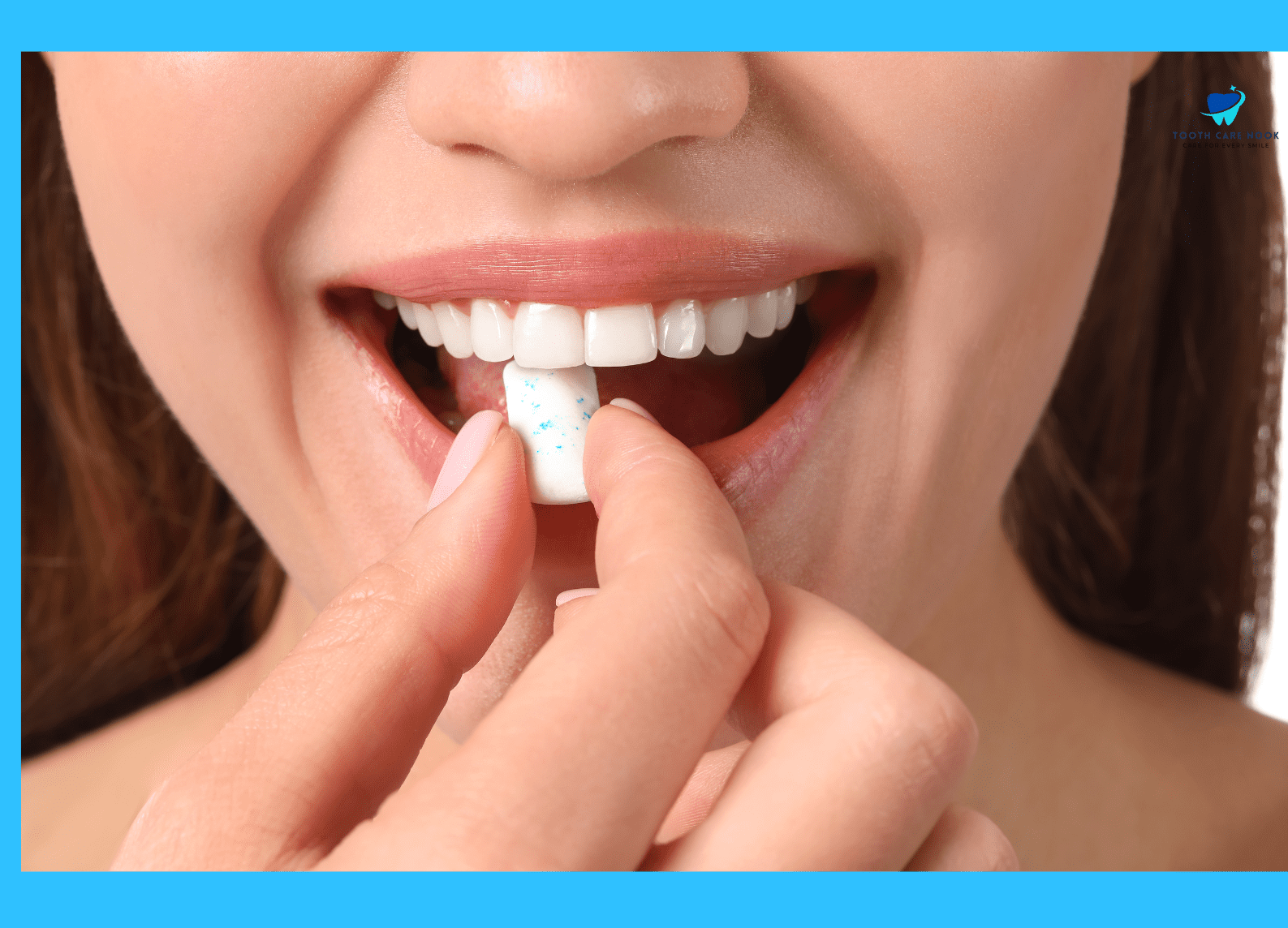Can You Chew Gum With Dental Implants?
Yes, you can chew gum with dental implants, which is generally considered safe. However, it’s important to be careful and mindful of the force you use while chewing to prevent potential damage to the implants or surrounding tissues.
What Kind of Gum Can I Chew With Implants?
There is no specific gum for dental work but you can chew sugar-free gum with dental implants. Opting for sugar-free varieties reduces the risk of dental issues like decay or gum disease.
You should avoid sugars to added with gums to reduce plaque buildup which potentially leads to complications. Sugar-free gum is generally safer for dental implants and less likely to cause problems.
What Are The Potential Drawbacks of Chewing Gum With Dental Implants?
Chewing gum with dental implants can have the following potential drawbacks:
Implant Overloading:
Continuous chewing can overload the implants, particularly during the initial healing period. This can impede the proper integration of the implants with the jawbone which delays healing.
Implant Wear and Tear:
Over time, repetitive chewing motions can cause wear and tear on the implant components or prosthetic attachments. This could potentially lead to the need for repairs or replacements in the future.
Increased Risk of Implant Fracture:
Prolonged or forceful chewing gum for dental work can also increase the risk of fracture or damage to the implant components which will require costly repairs or replacements.
Potential for Gum Recession:
Forceful chewing may contribute to gum recession by exposing the implant components and increasing the risk of implant-related complications.
Gum Dislodgement:
Vigorous chewing dislodges dental prosthetics or attachments which leads to discomfort, inconvenience, or the need for emergency dental care.
What Are The Caring Tips While Chewing With Dental Implants?
Following are some specific care tips to maintain health and longevity while chewing with dental implants:
- Distribute chewing evenly on both sides of your mouth to prevent overloading the implants and ensure balanced pressure distribution.
- Chew slowly and gently to reduce strain on the implants. Avoid sudden or jerky movements while chewing.
- Eat a balanced diet rich in vitamins and minerals to support overall oral health and promote proper healing of the implants.
- Take breaks between chewing sessions to give your jaw muscles and implants time to rest.

Can You Eat Nuts With Dental Implants
Yes, you can eat nuts with dental implants but they can pose challenges when you eat them with dental implants due to their hardness and potential to cause problems.
While you don’t necessarily need to avoid all nuts, you can opt for softer varieties or those that are easier to chew can help minimize the risk of complications. Here are some types of nuts that are generally considered safer options to eat with dental implants:
- Almonds
- Cashews
- Peanuts
- Pecans
- Macadamia nuts
How Long Do Dental Implants Last?
Dental implants can last for 10 to 25 years, with proper care. Studies show a success rate of around 95% over ten years, indicating their durability.
High-quality materials like titanium and advancements in implant techniques enhance their lifespan. Implant placement by skilled professionals and attention to prosthetic design are critical for long-term success.
Can You Bite An Apple With Implants?
Yes, you can bite an apple with dental implants. The success of biting into an apple with implants depends on factors such as the quality of the implants, proper integration with the jawbone, and careful chewing technique.
During the initial healing phase after dental implant surgery, it’s advisable to avoid biting directly apples. Instead, you can enjoy apples by cutting them into smaller slices. This approach helps minimize stress on the implants and promotes optimal healing.

